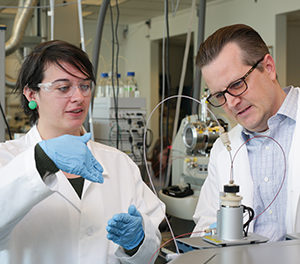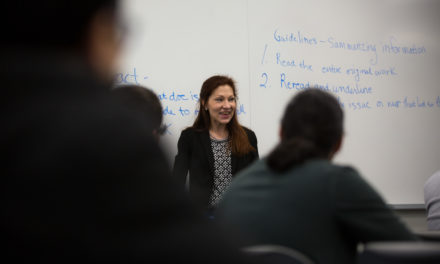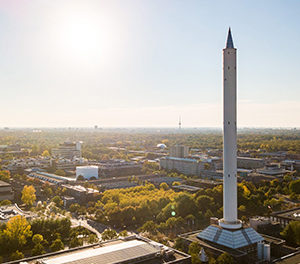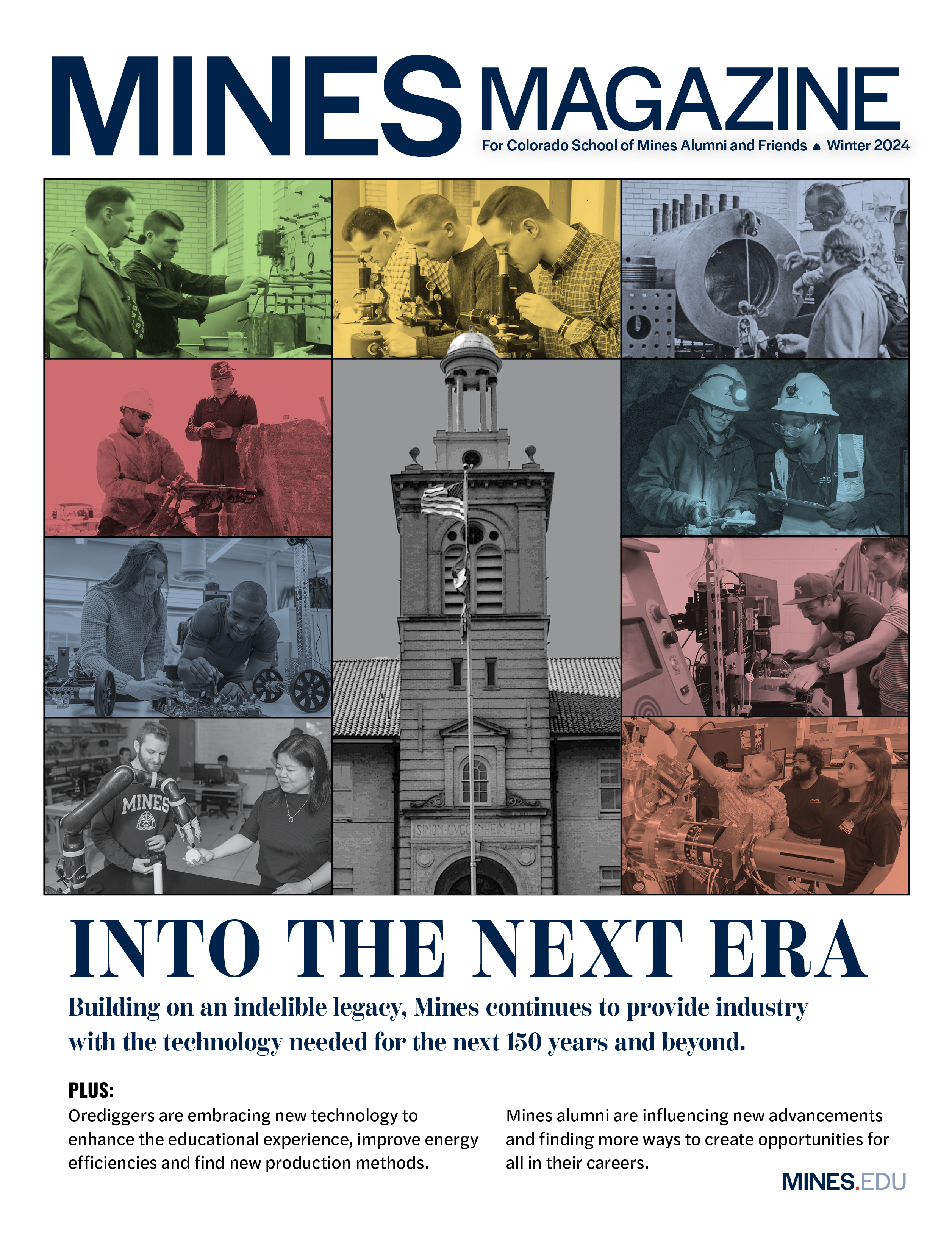Out of the gutter
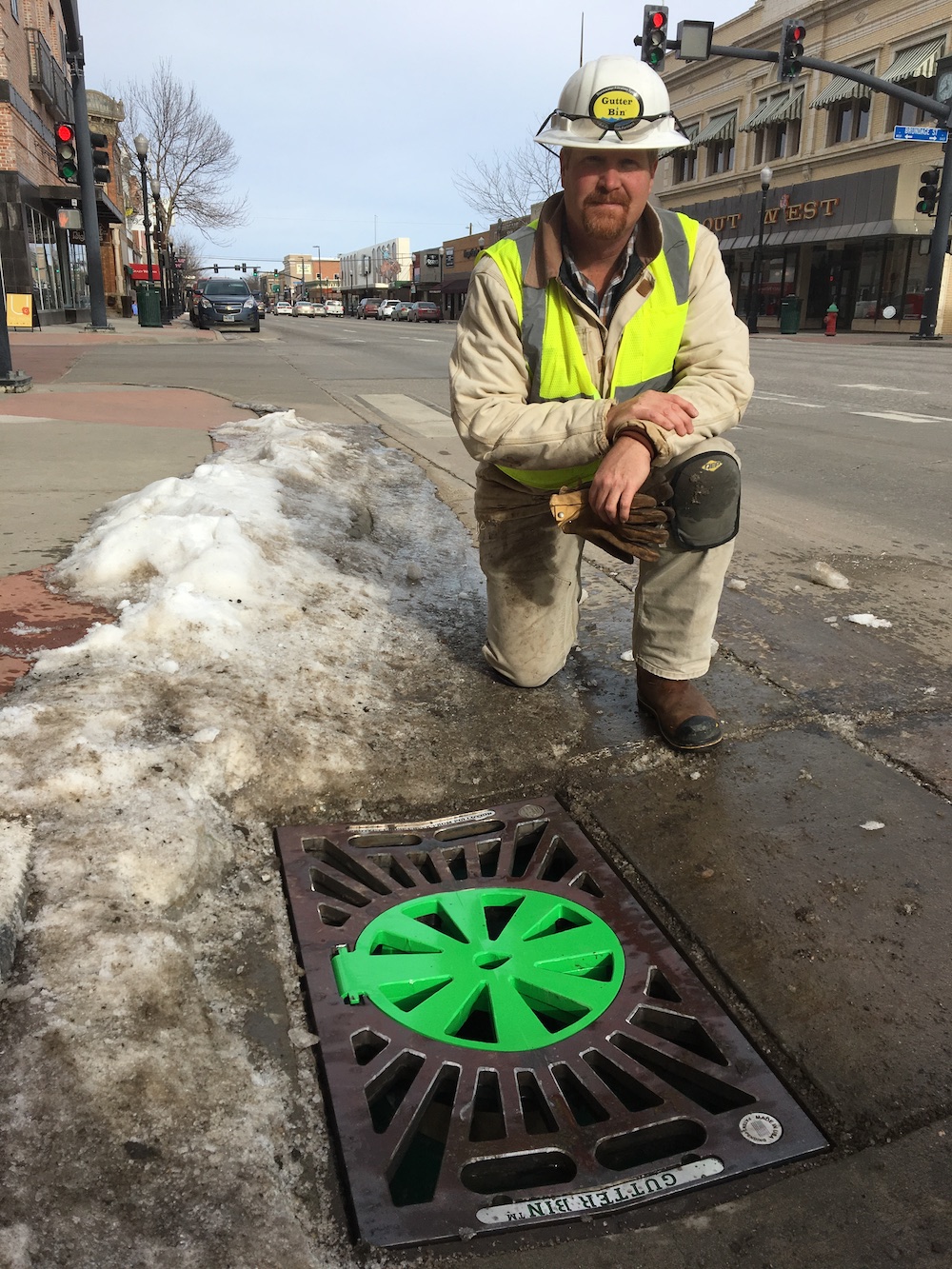
As an inventor with four U.S. patents and four registered trademarks, Brian Deurloo ’97 loves developing new ideas. His first patent was for magnetic cigarette butts, and the other three are for his commercialized invention, The Gutter Bin® stormwater filtration system, which helps keep cigarette butts and other trash out of rivers and oceans.
“I’ve hated cigarette butts since I was a kid,” Deurloo said. “I thought, wouldn’t it be cool if you could pick them up with a magnet? I filed the idea away.”
Fast forward to 2015. Deurloo and his wife emerged from the Bell in Hand Tavern in Boston and saw a 220-year- old cobblestone storm drain clogged with cigarette butts. Disgusted, Deurloo wondered where the trash went—to the water treatment plant or the bay? He discovered the stormwater goes into the ocean or the river. Worldwide, about 4 trillion cigarette butts hit the ground every year, he said, potentially poisoning the water supply with nicotine, which is one of the strongest insecticides in the world and known to kill fish quickly.
“I remembered my idea about using a magnet to pick up the butts, and I decided to design and patent it,” he said.
Deurloo looked for help at Mines, and was introduced to Terry Lowe, a research professor in the George S. Ansell Department of Metallurgical and Materials Engineering. “I remember sitting in the metallurgical lab—I hadn’t been in that building since 1990,” Deurloo said. “Dr. Lowe told me the idea is great, but it’s a (terrible) business. Even though he was skeptical, he agreed to work with me. But he suggested I find another idea for solving the problem that could actually make money.”
Four nights later, he sat up in bed at 2:37 a.m. with a vision of a gutter filter that would capture debris, including cigarette butts. By 3 a.m., he started creating a cardboard protype in his garage, and at 4 a.m., he was at Walmart buying supplies. A few months later, he entered a University of Wyoming startup challenge and won it.
The Gutter Bin is an adjustable funnel system that is installed into storm drains to direct polluted water into a patented water filter that can be quickly and easily removed, weighed, emptied and recycled.
Today, his environmental technology company, Frog Creek Partners, works with The Greenway Foundation, MYCELX and Rotary International clubs and has installed Gutter Bins at the Denver Zoo, in Vail, Fort Collins and Sheridan, Wyo., and many other places. There are even several Gutter Bins at the new Meow Wolf arts collective in downtown Denver.
What’s more, the Microsoft Community Environmental Sustainability Initiative made a $100,000 grant to Frog Creek Partners and the Rotary Club of Cheyenne, Wyo., to install 64 Gutter Bins in Cheyenne to help restore
and protect Crow Creek from the threat of stormwater pollution, according to a media release. The filters should capture three tons of pollution a year. His latest project is with the city of Colorado Springs, which is required to spend $460 million on stormwater infrastructure in the next 20 years after being sued by the Environmental Protection Agency and the state of Colorado for polluting Fountain Creek and the Arkansas River.
“Our goal is to get highly networked people to focus money on cleaning up stormwater,” Deurloo said. “We want to get the community to get involved in cleaning up their own rivers.”
Deurloo’s work is getting noticed nationally, too. He was just listed on the Forbes Next 1000 of 2021, which showcases inspirational entrepreneurs with under $10 million in revenue.
“I was blown away that they chose me,” he said. “If you would have asked me if this would happen five years ago, half of me would say no way, and the other half would say why did it take so long. I was happy to receive that vote of support. It tells me I’m on the right track.”
“I’m dreaming big,” said Deurloo, whose win in the University of Wyoming’s Casper Start-Up Challenge gained him a grant and an office. “I want it to be the most impactful environmental company in the world. Nicotine pollution is a worldwide problem. My new goal is creating an economical means to clean up storm drains and rivers around the world.”

